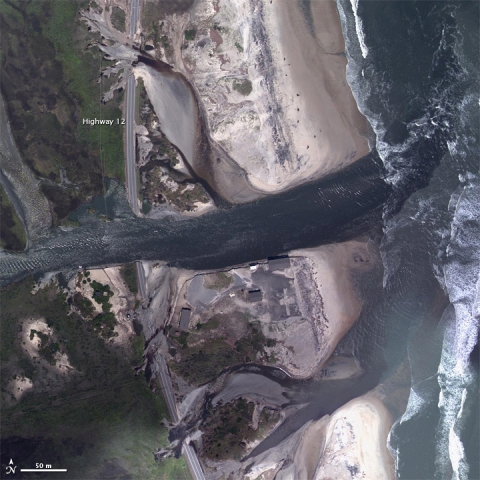NASA data are the most comprehensive and accurate resource for addressing many of the most important global issues, but these data often aren't used to their full potential. This is especially true in communities that are not already part of the core NASA user community. Often, major improvements in broadening the impact of NASA data can be made by simply making these data more accessible and useable in the context of specific user communities.
NASA's Understanding Needs to Broaden Outside Use of NASA Data (UNBOUND) project employs a series of coordinated domain-specific workshops designed to match influential analysis and visualization practitioners in target communities with NASA data scientists and others knowledgeable in the field. This collaboration will help define barriers to using these data and implement high-impact activities that will put NASA data at the forefront of policy decisions and dramatically broaden the use of NASA Earth Science data in communities outside of the NASA research community.
Past Workshops
Tribal Food, Energy, and Water Priorities Series
December 2023 - March 2024
NASA has incredibly rich and free data that can be used in planning for climate change. However, access to and use of these data can be challenging. NASA wants to make these data easier to find and access, especially for tribal organizations and colleges.
Individuals affiliated with tribal organizations or colleges are invited to participate in a four-part online UNBOUND workshop series to identify challenges and opportunities for improving accessibility and usability of NASA data tools for tribal food, water, and energy applications and priorities. The workshop series is aimed toward individuals who are not currently using NASA data products or would like to increase the use of NASA data for food, water, and energy applications.
Participants will:
- Explore how NASA data products can be used for tribal food, energy, and water planning
- Make connections with people and organizations using geographic information systems (GIS) for food, energy, and water issues
- Provide feedback to NASA to enable data to be more accessible and useful for tribal food, energy, and water priorities
Additional information is available on the workshop website.
Coastal Issues Series
September 2023
UNBOUND for Coastal Issues (UNBOUND CI) was a multi-session workshop to identify recommendations to make NASA Earth science data products more discoverable and suitable for analyses to address issues in coastal zones, encompassing both coastal and inland areas. The workshop series aimed to engage coastal issues for data practitioners who are not currently using NASA data products or would like to increase their use of NASA data for coastal applications. The workshop series was sponsored by Virginia Tech and Old Dominion University, with support from NASA's Earth Science Data Systems (ESDS) Program.
Air Quality Series
February - March 2023
Air quality is an important focus area of NASA's Earth Science Division (ESD). The UNBOUND for Air Quality (UNBOUND AQ) workshops were focused on identifying how to make NASA data products more discoverable and suitable for analyses to address air quality needs. The workshop was a collaboration between ESDS and Earth Science Information Partners (ESIP).
View Workshop Report (PDF, 41.1MB)
Environmental Justice Series
April - June 2022
UNBOUND builds on NASA Earth Science Division (ESD) objectives on equity and environmental justice. ESD is committed to ensuring that the investment the nation has made in NASA satellites and science benefits people across the U.S. and helps them make informed decisions about the very real challenges they face in their communities.
View Workshop Report (PDF, 48.7MB)
Environmental Predictors of Species Distributions
January - February 2022
The University of Montana’s Spatial Analysis Lab hosted a virtual workshop on broadening the use of NASA datasets by the Species Distribution Modeling (SDM) community. As part of the SDM workshop, five subgroups (Vegetation, Surface Water/Marine, Edaphic, Climate, and Human Disturbance) made general recommendations for improving access and usability by SDM practitioners. In many cases, workshop participants and subgroup teams explored NASA datasets in detail and provided product-specific recommendations detailed in the workshop report.

